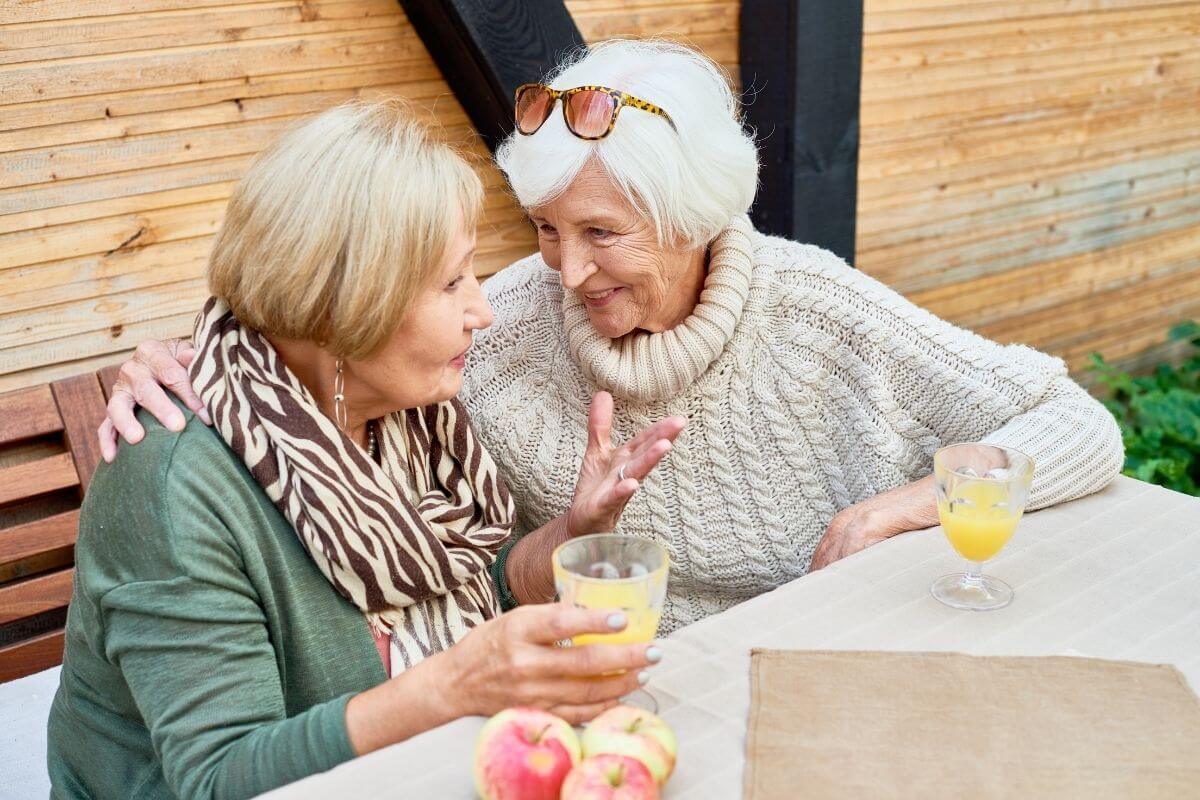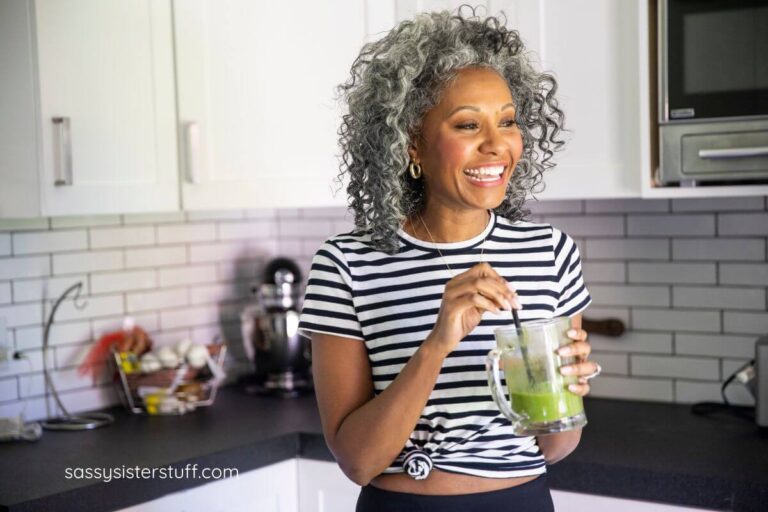10+ Important Benefits of Social Interaction
There are different perspectives on how many areas of self-care contribute to a happy, healthy life. But in some way, shape, or form, most experts agree about the importance of positive social interaction to your overall health and well-being.
Numerous studies indicate there is a direct correlation between strong social connections and both mental and physical well-being. Therefore, in this article, we are going to look at more than 10 benefits of social interaction.

We are also going to discuss the importance of social programs, social networks, social services, and typical social support in a variety of settings.
We all need close friends and family members who support our goals and visions in life. It’s essential for our health and longevity.

Definition: Positive Social Interaction
Let’s begin by asking, “What is the definition of positive social interaction?”
After much research and exploration, this definition encompasses what we, as adults, are referring to:
“Positive social interactions are interactions that promote the well-being of everyone involved, and lead to the ongoing development of social skills that encourage the parties to communicate respectfully and feel accepted by each other.”
Positive social interactions include common courtesies such as:
- encouraging each other to talk about self
- generously offering compliments and support
- practicing good manners and social norms
- asking open-ended questions and being willing to listen
- paying attention to your body language
- replacing negative thoughts about social self care
- monitoring intonation and voice
This is all called social health or social self-care so make it a part of your every day mindset.
Related Article: 21+ Ways to Practice Emotional Self Care and Wellness
The Role of Positive Social Interactions in Self-Care
Interestingly, studies often show even highly social people who have poor habits, like smoking and inactivity, frequently outlive less social people who practice a healthier lifestyle.
Social interaction contributes to longevity because friendship makes us feel a sense of belonging, acceptance, and security. The brain releases happy chemicals that contribute to better health.
These studies make it impossible to ignore the importance of a strong social network as a required prerequisite to a long and healthy life.
Related Article: How to Bring More Cozy Into Your Life

What Does Social Self-Care Look Like?
Social self-care can be as simple as calling your mother regularly or planning lunch with a friend. But these social activities need to be planned and executed without excuses, delays, and rescheduling.
Humans need to socially interact. They need one-to-one interactions and group interaction skills.
Your social self-care practices need to be important and intentional. They need to be a regular part of your lifestyle. Otherwise, it is very easy to neglect this aspect of your health.
Did you know humans are innately social and need social connectedness to thrive and flourish? They need to interact socially on a regular basis.
Even the most introverted people need to understand the importance of positive social interactions to overall health and well-being. It’s essential for negating loneliness, managing stress, and just having fun in life.
People need social connections to help them through difficult times and enjoy the happy times together. This is part of human nature.
Call a close friend, invite someone from work to go for a walk during lunch, join an online social networking group, find a hobby, and take a class.
Social networking and interactions do not need to be major projects and parties. But social self-care does need to be a priority.
Related Article: Sassy Sister Quotes for Sisters and Girlfriends
Physical Health Benefits of a Socially Active Life
Engaging in meaningful social interactions doesn’t just uplift your mood—it also has profound effects on your physical health.
Studies show that maintaining strong social connections can lead to better heart health, a stronger immune system, and even a longer lifespan.
When we interact with others, our bodies release oxytocin, a hormone that helps reduce stress and lower cortisol levels. Lower stress means a reduced risk of high blood pressure, heart disease, and chronic inflammation.
Additionally, socializing encourages healthier lifestyle choices, as people with strong social networks are more likely to stay active, eat well, and follow medical advice.
Social interaction also plays a role in brain health and cognitive function. Regular engagement with friends and loved ones stimulates the brain, which may reduce the risk of cognitive decline and dementia as we age.
In the following sections, we’ll explore both the risks of social isolation and the powerful ways social connections can support your mental well-being.

Physical Consequences of Limited Social Interactions
Research supports the findings that there are many negative physical consequences of spending a life of isolation and loneliness.
These consequences can significantly compromise your health and well-being.
Check out this list of physical side effects that can occur due to ignoring your social self-care:
- weakened immune system
- cardiovascular disease
- premature aging
- sleep problems
- cognitive decline in older adults
- overindulging in unhealthy foods
- overindulging in alcohol
- heart disease
- high blood pressure
- depressive symptoms
- weakened physical state
Again, it makes sense if you think about it. If you are not stimulating your mind with social interaction and meaningful relationships that promote overall health and well-being, your body is not going to get the care it needs to thrive either.
Communities at Risk
High-risk communities are our senior citizens, chronically ill people, and people who lose a spouse through divorce or death.
There are also groups of people with situational circumstances who may temporarily fall into an isolated lifestyle briefly due to unemployment, a move to a new area, or a health crisis.
But older people represent one of the most vulnerable groups at risk for isolation due to natural changes in their life and health.
Their social circle changes over time as friends die. Their quality of life often declines because they have less social activity and emotional support.
It’s important for people to realize the importance of social connection. This way, we can help older adults avoid isolation that can lead to unhappiness, loneliness, and worsening overall health.
Thus, all of us have a duty to pay attention to anyone who may be suffering or unable to practice healthy social self-care.
And we can, and should, step in to provide support and social interaction with those at risk.
Spending time with older people will help them maintain their communication skills, social ties, cognitive function, and sense of belonging.
Join a book club with them, follow a favorite sports team together, join social groups with like-minded people, go swimming to the local indoor pool, or visit with friends. You’ll soon see the many health benefits of social interaction for both of you.

Importance of Positive Social Interactions on Mental Health
We’ve already talked about physical benefits of social interaction. Now let’s look at the effects on mental health.
Social isolation is a key trigger for mental illness. Therefore, we want to stay socially engaged with others to avoid mental and emotional challenges.
Depression is a significant problem that troubles people who are isolated, lonely, or without social interaction opportunities.
Additionally, people who do not have appropriate social interactions experience mental health problems associated with higher stress levels and a lack of meaning in their lives.
It is common for mental health to deteriorate even more if the isolation continues, undermining self-esteem and a sense of purpose.
Appropriate social interactions lead to improved mental health. It can make you feel happier and lighten your mood. Think about the oxytocin that was discussed a few sections back and how it impacts your mood.
When you socialize with others, you have opportunities to think outside your box. Get out of your own head. Think about others instead of yourself.
Overall, socializing is good for brain health and promotes a sense of safety, belonging, and security.

Keys to Positive Social Interaction Skills
Let’s look at some things you can all do to focus on social self-care. This is just a short list for you to consider. Let’s strive to do better for ourselves and others:
- Set boundaries for your own social self-care. Find a reasonable balance that you are comfortable with and make it a priority in your life.
- Practice reaching out to others. For some it’s easier than others, but practice makes perfect.
- Find people that you genuinely have fun with and make it a priority to spend time with them. Solid, meaningful peer relationships support overall health.
- Focus on quality time with your social connections and positive peer relationships.
- Address your emotional self-care needs within your social network. Hiding your emotions and sidelining the difficult conversation isn’t good for anyone.
- Identify positive social interaction activities that bring you joy and clear your mind of stress and struggles.
- Volunteer in your community and widen your social network through common interests.
- You don’t need to be best friends with everyone you meet, but remember that your mind will stay healthy and active through social interactions.
- Consciously remember that social health is equally as important as physical, mental, emotional, and spiritual health.
So, I hope you’ll stay focused on your own social interactions and encourage social interaction for those around you who may need your support.
Related Article: I Challenge You to Be a Difference Maker

Nurturing and Maintaining Positive Relationships
Building and maintaining meaningful connections takes effort, but the rewards are well worth it. Supportive relationships contribute to your happiness, well-being, and overall quality of life.
Here are some ways to nurture the connections that matter most:
- Be open and approachable. A warm smile and a positive attitude go a long way in making others feel comfortable.
- Find common ground. Shared interests create a foundation for strong relationships—whether they are hobbies, values, or life experiences.
- Join social groups. Stepping outside your comfort zone and engaging in community activities, clubs, or volunteer organizations can introduce you to like-minded people.
- Reconnect with old friends. A simple phone call or message can rekindle a valuable relationship and remind you both of the bond you share.
- Plan a get-together. A healthy lifestyle includes getting together with friends to laugh, reminisce, and share good times. Take the initiative to put together a nice afternoon for friends—make it a healthy charcuterie lunch! What fun!
- Create a safe space. Healthy relationships thrive in an environment of trust, respect, and authenticity.
- Practice active listening. Truly hearing what others have to say—without interrupting or planning your response—strengthens your connection.
- Show empathy and understanding. Life has ups and downs, and being there for others in both joyful and difficult moments deepens relationships.
- Be reliable and trustworthy. Following through on promises and being there when someone needs you fosters a sense of security and belonging.
- Prioritize quality over quantity. A few deep, meaningful friendships can have a far greater positive impact than a large number of surface-level connections.
- Adapt and accept. People grow and change over time—embracing those changes in yourself and others keeps relationships strong.
By putting in the effort to cultivate positive social interactions, you’ll create a support system that enriches your well-being and helps you thrive!
A Summary: 10 Benefits of Social Interaction
I hope you’ve discovered well more than 10 benefits of social interaction and why it is essential to your well-being and vitality. But let me summarize 10 benefits of social interaction that have been discussed in this article:
- … stimulates your brain
- … contributes to your happiness and fulfillment in life
- … improves stress levels and depressive symptoms
- … helps reduce risk of dementia later in life
- … fosters a sense of security and belonging
- … teaches empathy and acceptance
- … strengthens your immune system
- … contributes to better heart health
- … teaches you about priorities and boundaries
- … contributes to a longer life
Save this article and revisit it on difficult days or during challenging times when social interaction feels difficult—because we all have those days!

Final Thoughts
Your social connections foster the natural feelings of love, empathy, and acceptance, which are essential for sustaining your overall health and well-being.
We are social creatures that thrive on interactions and activities with people.
Positive social interaction skills can be developed with practice even if you are not naturally comfortable being a social person.
It is essential to focus on the importance of positive social interaction even when it may seem easier to isolate.
Stay social. Engage with others. Avoid loneliness. Because it can start a downward spiral of health issues.
Love to All! ~Susan







